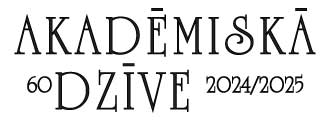Latvia’s post-heroic identity
DOI:
https://doi.org/10.22364/adz.60.07Keywords:
Latvia, post-heroic, victimhood, identityAbstract
In recent years, commemorative practices in Europe have changed and historiography uses the term “post-heroic” to describe this transformation in memory-making. Post-heroism signifies the change to public recognition no longer being attributed to heroic deeds, but to the victims of conflicts and wars. These recent transformations in European commemorative practices are a challenge to the idea of a united European identity, since an identity based on a narrative of victimhood creates an exclusive identity for the group which has suffered and does not allow the ideal of a united European identity to thrive. The construction of Latvia’s collective memory after the country regained independence in the year 1990 serves as a good example to describe post-heroic identity; with this example one can illustrate the consequences and challenges for a society which embraces such a self-image.
References
Ābols, G. (2003) The Contribution of History to Latvian Identity. Riga: Nacionālais apgāds.
Améry, J. (1980) At the Mind’s Limit: Contemplations by a Survivor on Auschwitz and its Realities. Bloomington, IN: Indiana University Press.
Assmann, A. (2006) Der lange Schatten der Vergangenheit. Erinnerungskultur und Geschichtspolitik. Munich: C. H. Beck.
Bleiere, D.; Butulis, I.; Zunda, A.; Stranga, A.; Feldmanis I. (2006) History of Latvia. The 20th Century. Riga: Jumava.
Cascone, S. (2021) How Do You Mourn a Pandemic? See How Artists Around the World Are Building Monuments to Those Who Died of COVID-19. Artnet (12.03.2021.). https://news.artnet.com/art-world/covid-19-memorials-1951143 (skatīts 18.09.2024.).
Chaumont, J. M. (2001) Die Konkurrenz der Opfer. Genozid, Identitaet und Anerkennung. Lueneburg: zu Klampen Verlag.
Eglitis, D. S. (2002) Imagining the Nation: History, Modernity and Revolution in Latvia. University Park, PA: Pennsylvania State University Press.
Ezergailis, A. (1996) The Holocaust in Latvia, 1941–1944: The Missing Center. Washington, DC: United States Holocaust Memorial Museum.
Fröhlich, A. (2022) Verharmlosung der Shoa bei Corona-Demos: „Ungeimpft“ – Berliner Polizei geht ge-gen Tragen des „Judensterns“ bei Protesten vor. Tagesspiegel (24.01.2022.). https://www.tagesspiegel.de/berlin/ungeimpft--berliner-polizei-geht-gegen-tragen-des-judensterns-bei-protesten-vor-3380983.html (skatīts 16.09.2024.).
Germanis, U. (1974) Oberst Vacietis und die lettischen Schützen im Weltkrieg und in der Oktoberrevolu-tion. Stockholm: Almqvist & Wiksell.
Lagrou, P. (2011) Europe as a Place for Common Memories? Some Thoughts on Victimhood, Identity and Emancipation from the Past. Blaive, M.; Gerbel, C.; Lindenberger, T. (eds) Clashes in European Me-mory: The Case of Communist Repression and the Holocaust. Innsbruck: Studien Verlag, 281–288.
Latvia and the Jews (1990) New York Times (02.03.1990.). http://www.nytimes.com/1990/03/02/opinion/l-latvia-and-the-jews-384890.html (skatīts 29.07.2022.).
Lettland unter der Okkupationsherrschaft der Sowjetunion und Nazi-Deutschland 1939–1991 (2024) Ausstellungskatalog. Published by Lettisches Okkupationsmuseum. Ventaskraste, A. (ed.) Riga: Verein des Lettischen Okkupationsmuseums.
Mazvērsīte, D. (1989) Nekad nenolasīta runa… Avots, 1.
Meckl, M. (2000) Helden und Märtyrer. Der Warschauer Ghettoaufstand in der Erinnerung. Berlin: Met-ropol-Verlag.
Nixon, R. (1952) Address of Senator Nixon to the American People: The “Checkers Speech”. Online by Peters, G.; Woolley, J. T. The American Presidency Project. https://www.presidency.ucsb.edu/node/270215 (skatīts 18.09.2024.).
Pabriks, A.; Purs A. (2001) Latvia: The Challenges of Change. London: Routledge.
Plakans, A. (2011) A Concise History of the Baltic States. Cambridge: Cambridge University Press.
Purēns, V. (2022) Latvijas un pasaules vēsture 9. klasei. Rīga: RaKa.
Radzobe Z.; Bērziņš D. (2021) Living Together: Memory Diversity in Latvia. Salmi-Niklander, K.; Laine, S.;
Salmesvuori, P.; Savolainen, U.; Taavetti, R. (eds) Friction, Fragmentation, and Diversity: Localized Poli-tics of European Memories. Heritage and Memory Studies. Amsterdam: Amsterdam University Press, 235–250.
Renan, E. (1947) A Lecture Delivered at the Sorbonne, 11 March 1882: ‘Qu’est-ce qu’une nation’”. Oeuvres Completes, 1. Paris: Calmann-Lévy, 887–907.
Sabrow, M. (2011) The Post-heroic Memory Society. Models of Historical Narration in the Present. Blai-ve, M. (ed.) Clashes in European Memory: The Case of Communist Repression and the Holocaust. Wien: StudienVerl, 88–98.
Sander, H. (1968) Rede des „Aktionsrates zur Befreiung der Frauen“ auf der 23. Delegiertenkonferenz des „Sozialistischen Deutschen Studentenbundes“ (SDS) im September 1968 in Frankfurt. http://www.glasnost.de/hist/apo/weiber3.html (skatīts 16.09.2024.).
Slūžas vaļā. (2013) Andas Burves-Rozītes intervija ar Džemmu Skulmi. Žurnāls “Ir” (02.10.2013.). https://ir.lv/2013/10/02/sluzas-vala-2/ (skatīts 16.09.2024.).
Smidchens, G. (2007) National Heroic Narratives in the Baltics as a Source for Nonviolent Political Action. Slavic Review, 66 (3), 484–508. https://doi.org/10.2307/20060298.
The World Day of Remembrance for Road Traffic Victims (n. d.) https://worlddayofremembrance.org/#info (skatīts 16.09.2024.).
United States Holocaust Memorial Museum (n. d.) Deportations from the Warsaw Ghetto. Holocaust
Encyclopedia. https://encyclopedia.ushmm.org/content/en/article/deportations-to-and-from-the-warsaw-
ghetto (skatīts 16.09.2024.).
Vulfsons, M. (1998) Nationality Latvian? No, Jewish: Cards on the Table. Riga: Jumava.
Downloads
Published
Issue
Section
License
Copyright (c) 2024 Latvijas Universitāte

This work is licensed under a Creative Commons Attribution-NonCommercial 4.0 International License.


